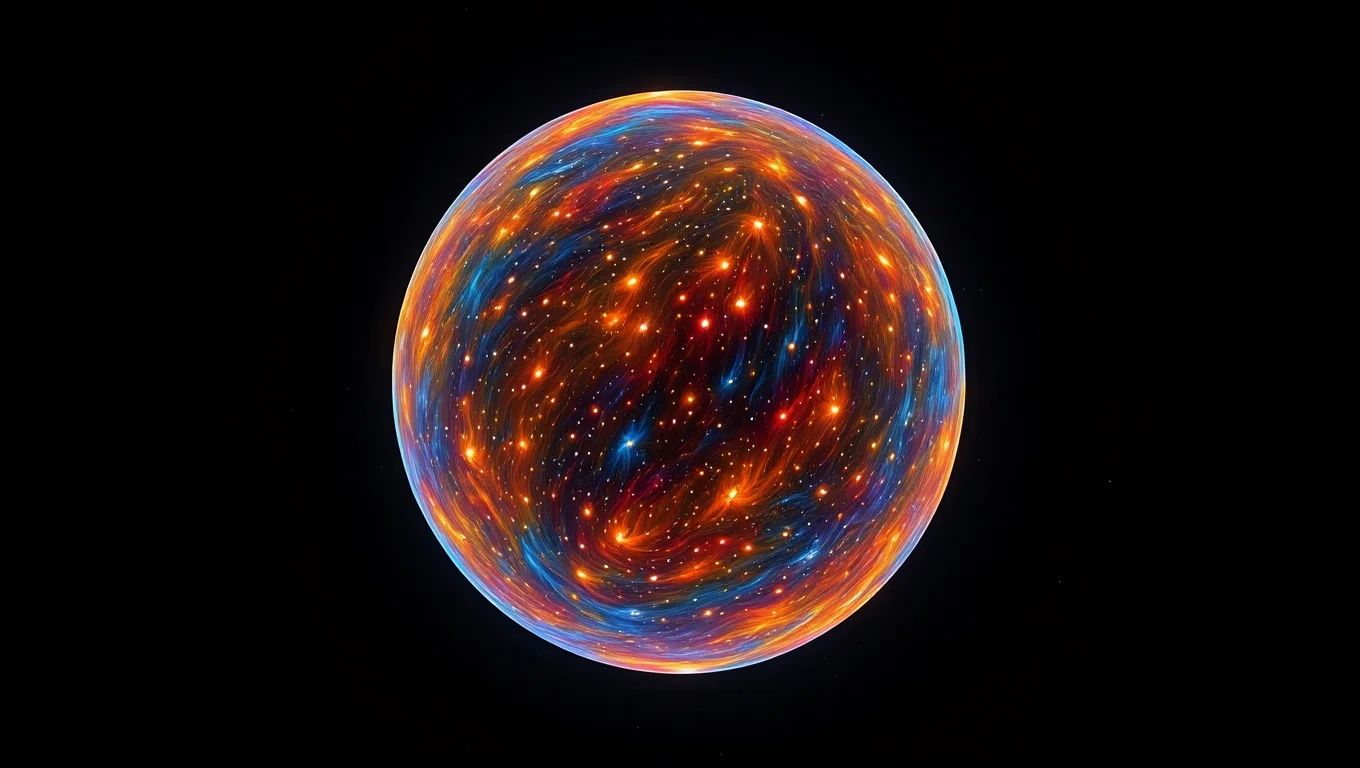The rotating universe, an elegant solution to this major astrophysical problem 🌀
Published by Adrien,
Source: Monthly Notices of the Royal Astronomical Society
Other Languages: FR, DE, ES, PT
Source: Monthly Notices of the Royal Astronomical Society
Other Languages: FR, DE, ES, PT
Follow us on Google News (click on ☆)
Scientists have long assumed the universe expands uniformly, without rotation. Yet, two main methods for measuring this expansion yield slightly different results. One uses light from distant supernovae, while the other analyzes the cosmic microwave background, a remnant of the Big Bang.

István Szapudi's team introduced a minuscule rotation into their mathematical models of the universe. This adjustment, though tiny, helped reconcile conflicting measurements without violating known physical laws. Their model suggests a rotation so slow it remains undetectable with current instruments.
This innovative approach doesn't challenge cosmology's foundations. Instead, it offers an elegant solution to the 'Hubble tension problem,' a debate that has divided astrophysicists for years. Universal rotation, however slight, would influence how space expands.
Next steps involve developing more precise simulations and searching for observational signatures of this rotation. Researchers hope finer data, particularly from the James Webb Space Telescope, may provide answers.
This theory, published in the Monthly Notices of the Royal Astronomical Society, relies on rigorous calculations. It shows how a simple idea can solve a complex problem without requiring exotic physics. The scientific community welcomes these results with a mix of skepticism and enthusiasm.
If confirmed, cosmic rotation could necessitate revising aspects of our understanding of the universe. For now, however, it remains one hypothesis among many in the quest to explain Hubble tension.
What is Hubble tension?
Hubble tension refers to the discrepancy between two main methods for measuring the universe's expansion rate. The first relies on observations of supernovae—stellar explosions whose brightness helps calculate distances. The second analyzes the cosmic microwave background, the oldest light in the universe.
These approaches yield slightly different values for the Hubble constant, which describes the expansion rate. This divergence poses a major problem for cosmologists, as it might indicate a fundamental misunderstanding of the physical laws governing the universe.
Several theories have been proposed to solve this puzzle, including new physics or systematic measurement errors. The hypothesis of universal rotation now joins this list, offering a potential solution without resorting to exotic concepts.
Resolving Hubble tension is crucial for refining our cosmological model. It would improve our understanding of the universe's past and future, as well as the nature of dark energy, responsible for its accelerated expansion.
How is the universe's rotation measured?
Detecting rotation as slow as Szapudi's team proposes presents a significant technical challenge. Current methods rely on meticulous observation of anisotropies in the cosmic microwave background and galaxy distribution.
Universal rotation would imprint specific patterns in this data, such as distortions in the cosmic microwave background's polarization. These signatures would be extremely faint, requiring unprecedented instrument sensitivity.
Future space missions and ground-based telescopes, like the Square Kilometer Array, may provide the necessary data. These tools will map the universe with unmatched precision, possibly offering proof of this rotation.
Confirming such rotation would open a new chapter in cosmology. It would imply the universe isn't as isotropic as thought, with profound consequences for our understanding of its origin and evolution.